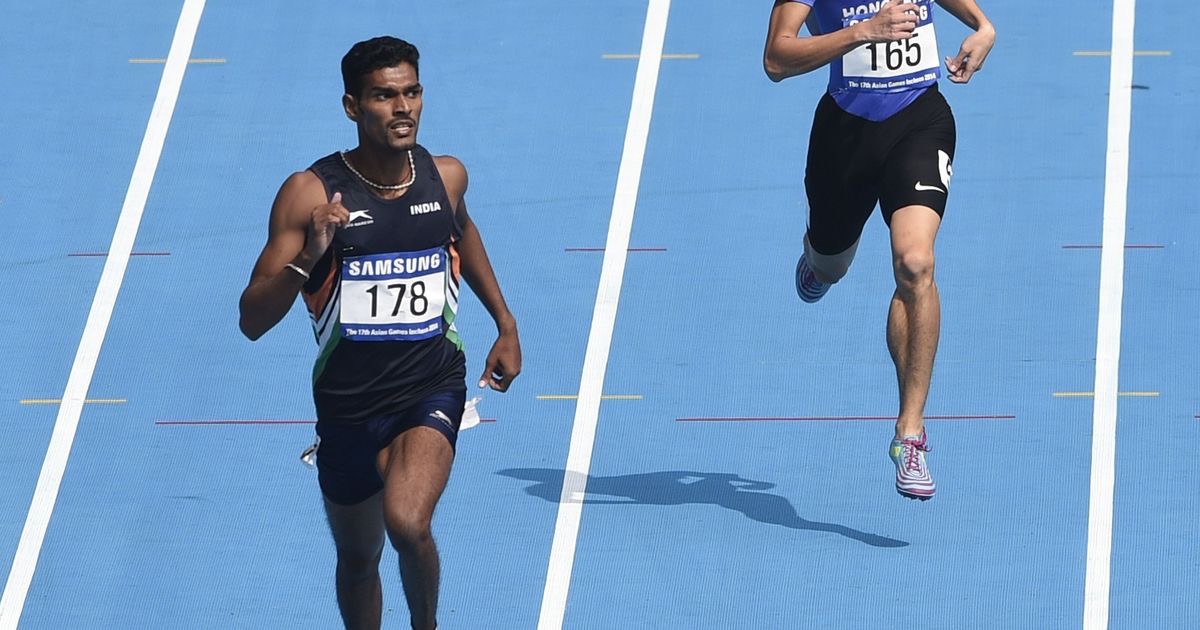NADA officials wont be able to conduct independent raids after Jitin Paul's appeal

NADA conducted a surprise check at the national institute of sports, Patiala and found injections of banned substances from the room of athlete Jitin Paul. After getting a ban for 4 years, Paul appealed against his decision due to which NADA officials won’t be able to conduct independent raids.
Justin Paul has been known for his 400m hurdles National Open title and also a silver medal at the South Asian Games 2016. In April last year, National Anti-Doping Agency (NADA) officials conducted a ‘surprise check’ in the rooms of athletes and coaches at the National Institute of Sports in Patiala. They claimed to have recovered two types of injections from the room of 400metre hurdler Jitin Paul. Results of tests at the National Anti-Doping Laboratory (NDTL) in New Delhi revealed that one of these injections contained Meldonium, a banned substance which caught the attention of the world when tennis star Maria Sharapova failed a dope test in 2016.
Paul was banned for four years by the disciplinary panel of NADA for possession of banned substances in February this year. He appealed against the decision to the appeal panel, an option open to the athletes. As a result of the appeal, henceforth, NADA officials won’t be able to conduct any raids independently and can only tip off the police, customs or any other law enforcement agencies if they suspect that an athlete is in possession of drugs, as per the latest ruling which went in
On Thursday, the appeal panel stated that NADA officials had no powers to search — like they did during the ‘surprise check’ — and overturned the ban imposed on Paul.
“A search is a serious violation of the privacy of a person and can be exercised only if duly authorized by law. There is no law passed by the parliament to which our attention was drawn on behalf of NADA authorizing or regulating the search power over sportspersons,” the order stated.
The panel also highlighted an email reply from the World Anti-Doping Agency, which stated that ‘anti-doping
“In the past, search and seizures that have led to Anti-Doping Rule Violations were conducted by local law enforcement,” the WADA email stated in response to a query by the athlete’s lawyer Parth Goswami.
The panel also picked holes in the manner in which the evidence — injections — was collected and also said that there were irregularities in collating the evidence.
For example, there were discrepancies in the number of alleged injections recovered from Paul’s room and the number mentioned in the charge against the athlete. There was overwriting on the envelope, the athlete’s lawyer Goswami had argued.
“No seizure memo was prepared nor was any document or receipt issued to the athlete for the injections alleged to be found in the room of the athlete,” was one of the contentions of the appellant.
On the evidence gathered by NADA, the appeal panel said, “They are not clerical or typographical errors. They are errors which throw serious doubt about the veracity of the claims of the authorities, who conducted the search and the authenticity of their claim to have found incriminating evidence in the possession of the appellant. The corrections on the envelopes have not been properly explained or authenticated, thus throwing serious doubts as to their veracity. We accordingly set aside the order dated 21st February 2018 passed by the disciplinary panel imposing ineligibility of 4 years on the appellant."
